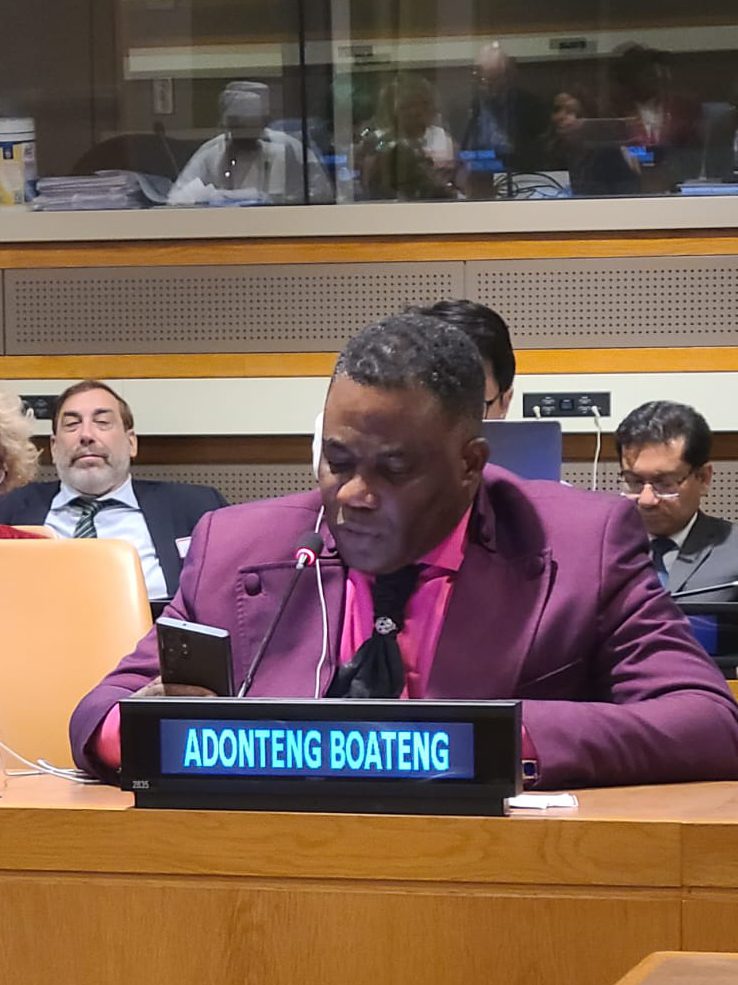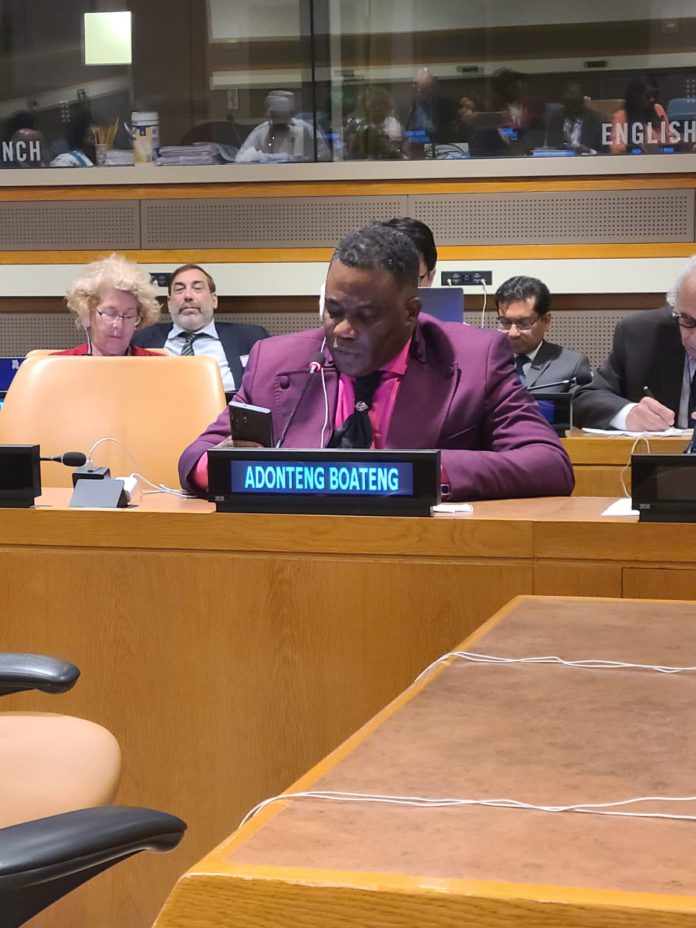Bishop Kofi Adonteng Boateng, the founder and overseer of Divine Word International Ministries, has emphasized the vital role of the Educators’ Learning Environment in driving positive change as tied to the Sustainable Development Goals (SDGs) digital age transformation.
Bishop Adonteng made the comments in a compelling speech delivered to an audience of educators, distinguished guests, and community members at the United Nations Headquarters in New York.
He emphasised the pressing need for educators to adapt to the rapidly evolving world and utilize education as a powerful tool to shape a sustainable future.
Bishop Adonteng Boateng highlighted the significance of the SDGs, the blueprint adopted by the United Nations to tackle global challenges.
He emphasized that SDG 4, with its focus on quality education, plays a crucial role in transforming individuals and societies.
As educators, he stated, they hold the key to unleashing the transformative potential of education.
The digital age transformation requires educators to embrace continuous learning and adaptability, moving beyond merely incorporating technology into classrooms.
Bishop Adonteng Boateng stressed the importance of investing in educators’ professional growth, providing access to quality training programmes, workshops, and conferences.

He advised that educators remain updated on the latest educational practices and digital tools to equip their students for the future effectively.
The Bishop also emphasized the need for inclusive learning environments that ensure education is accessible to all, regardless of socio-economic status, gender, ethnicity, or geographic location.
He advocated for leveraging technology to bridge the digital divide and providing equal opportunities for quality education.
In doing so, educators can empower individuals and contribute to the overall advancement of society.
The reverend urged educators to prioritize the development of critical thinking, problem-solving, and digital literacy skills.
He encouraged them to create opportunities for students to engage with real-world problems, utilizing technology as a tool for inquiry, exploration, and creative expression.
By doing so, students can become active participants in the digital age, capable of positively impacting society and the environment.
Instilling Ethical Use of Technology
As the digital world becomes an integral part of daily life, Rev. Adonteng stressed the importance of educating students on the ethical use of technology, digital security, and the importance of privacy.
By nurturing responsible digital citizens, educators can harness the potential of the digital age to create a more equitable, just, and sustainable world.
Paving the Way for a Better World
In conclusion, Bishop Adonteng left the audience with a powerful message, asserting that the educators’ learning environment acts as a catalyst for the SDG digital age transformation.
He called upon educators to embrace continuous learning, empower their students with essential skills, and create inclusive and sustainable learning environments.
By doing so, they will not only shape the future of their students but also contribute significantly to achieving the Sustainable Development Goals, leading the way to a better world.
The speech resonated strongly with attendees, inspiring them to take action and play their part in the collective effort to achieve sustainable development through education in the digital age.

